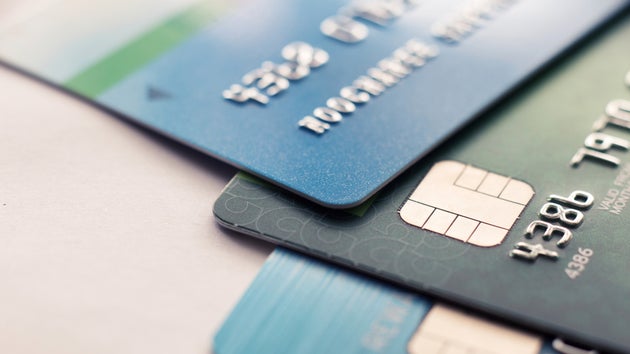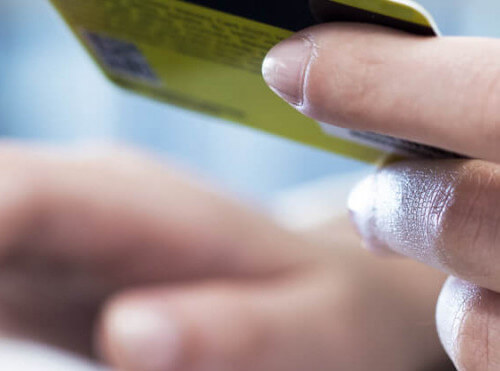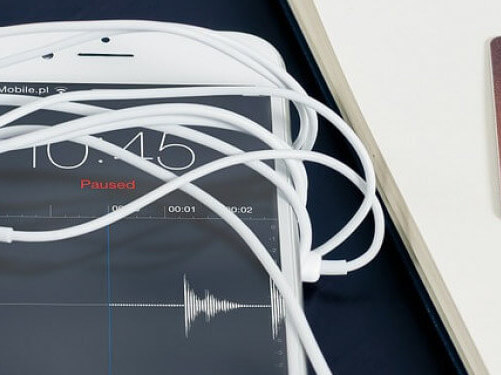Table of Contents
Online shops enjoy success through a number of different factors. One of the most important factors is choosing the correct payment method. Both established eCommerce retailers and startups should weigh the pros and cons of all payment methods they consider and make sure they evaluate and change their current methods when necessary.
The target group also plays a big role in the success of the shop. If the target group does not like or cannot use the payment methods offered, over 70% of buyers may cancel their orders at checkout. Online retailers must always keep this in consideration when they assess their shop’s efficacy and profitability. Usually, offering three to six different payment methods is the best choice for retailers. In the following article, we will briefly explain the most important payment methods in Germany to you.
Purchase on account
Purchasing on account is still the most popular payment method in Germany in online shops. It is sensible to use this method for especially valuable products and for target groups that include older customers. No sensitive payment data is released by the customer and the product is shipped immediately after the order is placed. Then, the bill, or invoice, is paid by the customer after receiving the product. On one hand, this method of payment also reduces the amount of order cancellations and addresses target groups that are difficult to reach with other payment methods. On the other hand, retailers take on the risk of never receiving invoice payments after shipping out the product. The risk can be minimized through using a payment service provider who takes over the entire billing and payment process and the risk of unpaid invoices. The retailer pays the PSP a small fee for every transaction in order to take advantage of this service.
Payment through direct debit
Direct debit is also a common method of payment used in Germany. The customer chooses to pay through the direct debit process and enters their information into an online formula on the online shop’s site. A direct debit authorization is then executed and when successful, the retailer immediately takes the money out of the customer’s account and then ships the order. The process is quick, cost efficient and is thus offered by many online shops. The possibility of unpaid invoices is a lot lower when using direct debit compared to purchasing on account. However, if the customer disputes the charge, enters false information or there is not enough money in the account to complete the purchase, reimbursement fees occur. Moreover, retailers do not have any legal proof needed for collection when there is no written authorization of the direct debit charge. For this reason, retailers should take precautions and insure themselves against fraud and credit risks through preventative measures and using a payment service providers. PSPs offer to assume liability for direct debit and take anywhere from 2 to 10% of the revenue per transaction for this service.
Paying with credit cards – Visa, Mastercard and American Express
Credit cards are becoming more and more popular, because they are quick and easy to use. The customer enters their credit card information into an online formula on the shop’s website, which is then sent over to the PSP, directly to the acquirer or to the bank that oversees credit card transactions. Visa and Mastercard are the most common credit cards in the German market.
This method of payment can be advantageous for retailers, because the risk of unpaid invoices is negligible, as the money cannot be easily taken back after processing. Fraud, however, is a risk that must be assumed by the retailer. If a retailer wants to offer credit card payments as a method of payment in their shop, they must sign a separate contract that addresses credit card acceptance with an acquirer. Typically retailers who already have established shops sign these contracts. For startups, it is more sensible to use a payment service provider.
Additionally, the PCI-DSS, a high security standard, upholds requirements that shops must fulfill in order to offer credit card acceptance, processing and storage of data.
It is easier to offer credit card payments through a payment service provider. Most PSPs are PCI-DSS certified and take over the payment process and risk of unpaid invoices. Retailers typically pay a fee from around 2 to 4% of transaction revenue for this service.
E-wallets including PayPal
PayPal is an internationally-renowned online payment processor that is already used by over 200,000 shops in Germany. In order to accept customer payments through PayPal, they must create a free account and enter their bank and payment information on the PayPal website and authorization. In addition to a checking account, customers can also add their credit card details. When a customer chooses to use PayPal as their payment method, they are automatically forwarded to PayPal’s website to complete their transaction. Once redirected, they enter their user information and the payment is processed. The retailer receives a confirmation of payment from PayPal and can then send the product ordered. This method is safe and easy for the customer that can be used even for small transactions. Retailers pay 1,9% plus 35 cents per transaction unless they create a special agreement between their business and PayPal.
Other e-wallets include Amazon Wallet and Skrill.
Mobile Payments – mpass, Boku, Zong, Infin
Payment processing on smartphones requires payment information to be processed and authorized over the phone interface. The customer chooses the option in the online shop and enters their mobile number and password. They then receive an mTan (mobile transaction number) per SMS that they enter in order to complete the payment. The amount is then taken from the mobile account. When shopping over smartphones, the booking process takes only two clicks. This is advantageous because it minimizes data theft as every single transaction needs to be confirmed by the smartphone user. O2, Telekom and Vodafone introduced mpass to the market and take 1,9% plus 0.22 cents per transaction. Additionally, retailer accounts cost 49.90 euros to establish, a compliance test costs 29.90 euros and the yearly fee for the account is 49.90 euros. Other mobile payment providers are Boku, Zong and Infin among others.
Online transfers – SOFORT Transfer, Ideal, Giropay
Online transfers purchase products in real-time. Customers enter their online banking data into the payment processor and authorize the transfer with their TAN (transaction authentication number). This is easy for the customer and they do not have to enter much personal data. This also reduces the risk of payment mistakes or fraud. Retailers receive a normal transfer and a direct confirmation of the successful payment from the customer. Then they send the product directly.
For retailers, this method is almost 100% failsafe and a perfect alternative to the classic prepayment processing method. The payment method also offers less credit risk to the customer. The payment service provider transfers the payment directly after the order is placed, lessening the effort for retailers. A study by ibi Research shows that average costs for SOFORT transfers is about 1.88 euros, while the cost of a traditional prepayment is about 3.54 euros.
Prepaid cards such as Paysafecard
Prepaid cards can be used for any purchase that does not exceed the amount of money loaded onto the card. The customer adds a desired amount to the card and can use it to shop thereafter. In order to pay with it, the customer chooses the prepaid card option, enters the information and the PIN from the card. After receiving confirmation of the validity of the card, the money is taken from the card balance. This is advantageous for customers because it can be used anonymously and is not at risk of much fraud or misuse, as there is only a certain amount of money tied to the card. This card is a good choice for minors, because they don’t have to reveal any information about themselves online. This is a common method of payment for digital goods, although not very well known in Germany. The costs of purchasing a prepaid card can amount to 8 to 15% of the transaction revenue.
Finding your perfect payment service provider
In order to be successful in e-commerce, it’s important that online shops offer customers their preferred methods of payments. That way, online shops can avoid canceled orders and raise their conversion rates. It is important to inform yourself of all your options, compare them and decide what PSP is best for your online shop. This way, you’ll explore your options and find the best ways to incorporate your desired methods of payment.
Paylobby is here to support you in your search for the perfect PSP. Use our overview and well-founded comparison matrix to learn more - and trust the experts.










